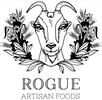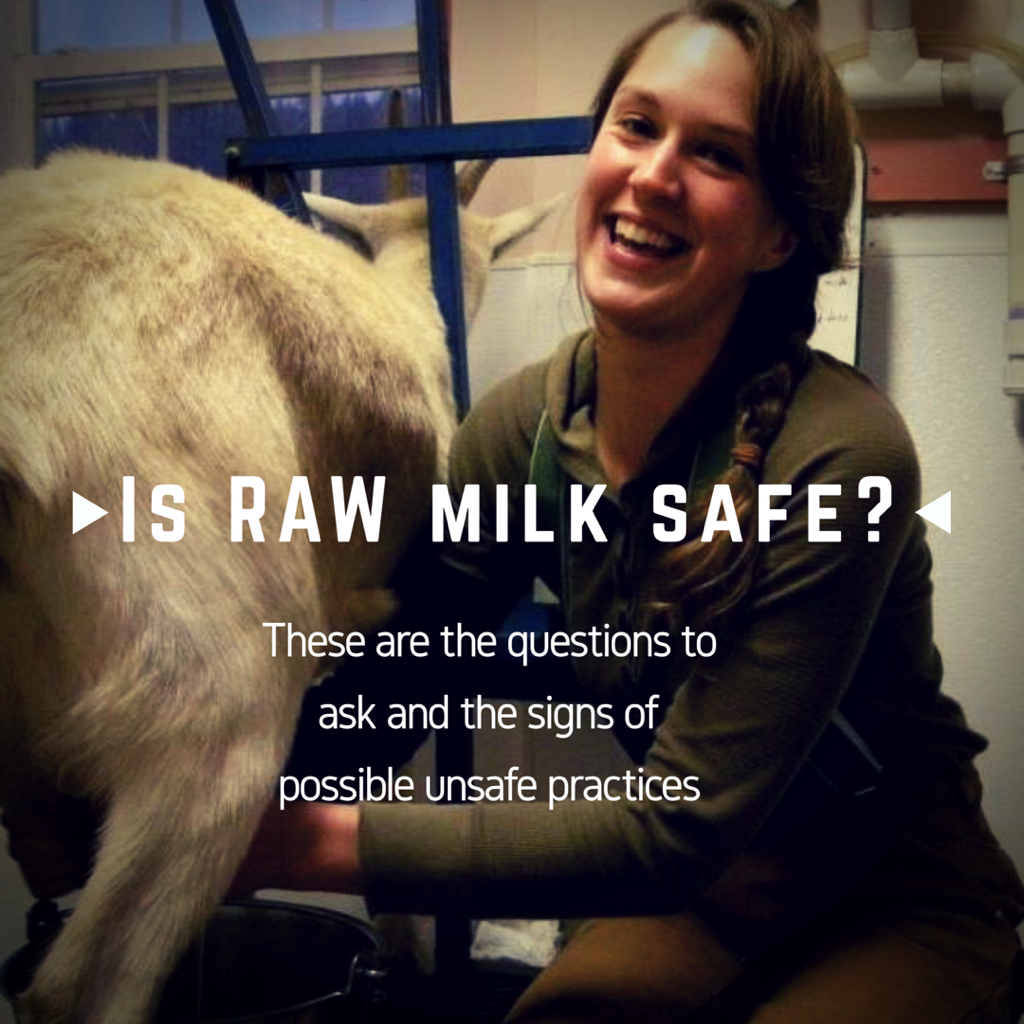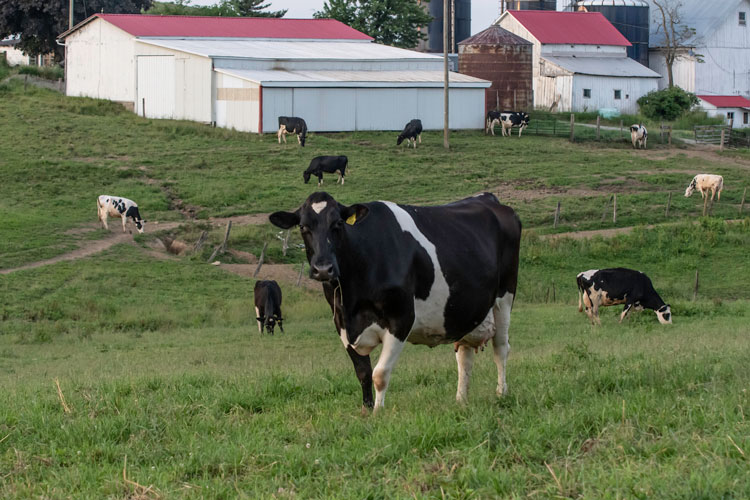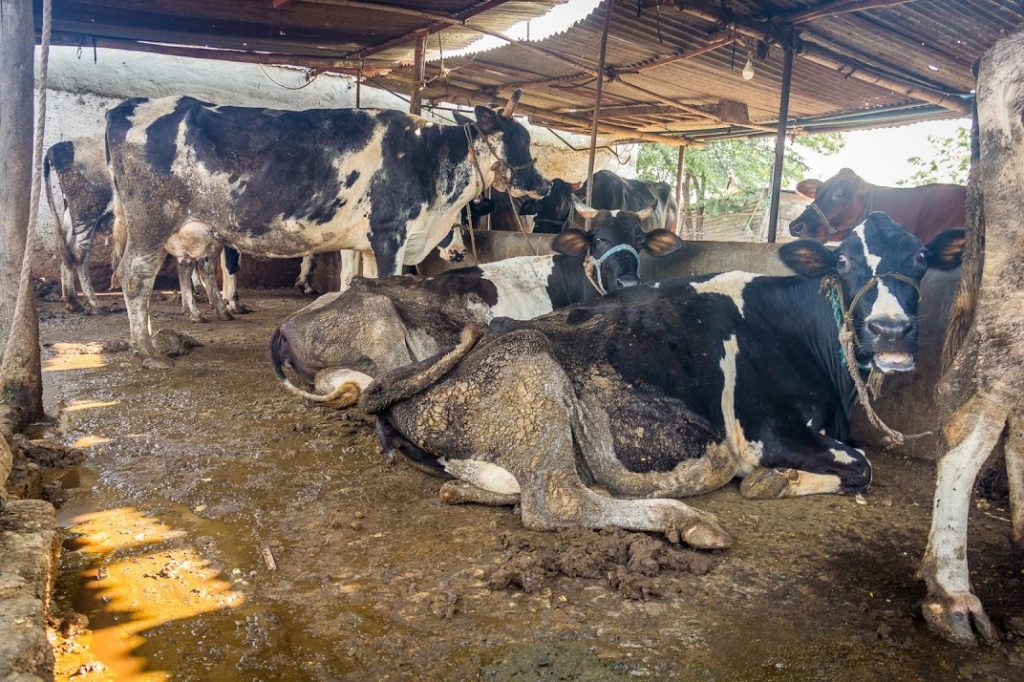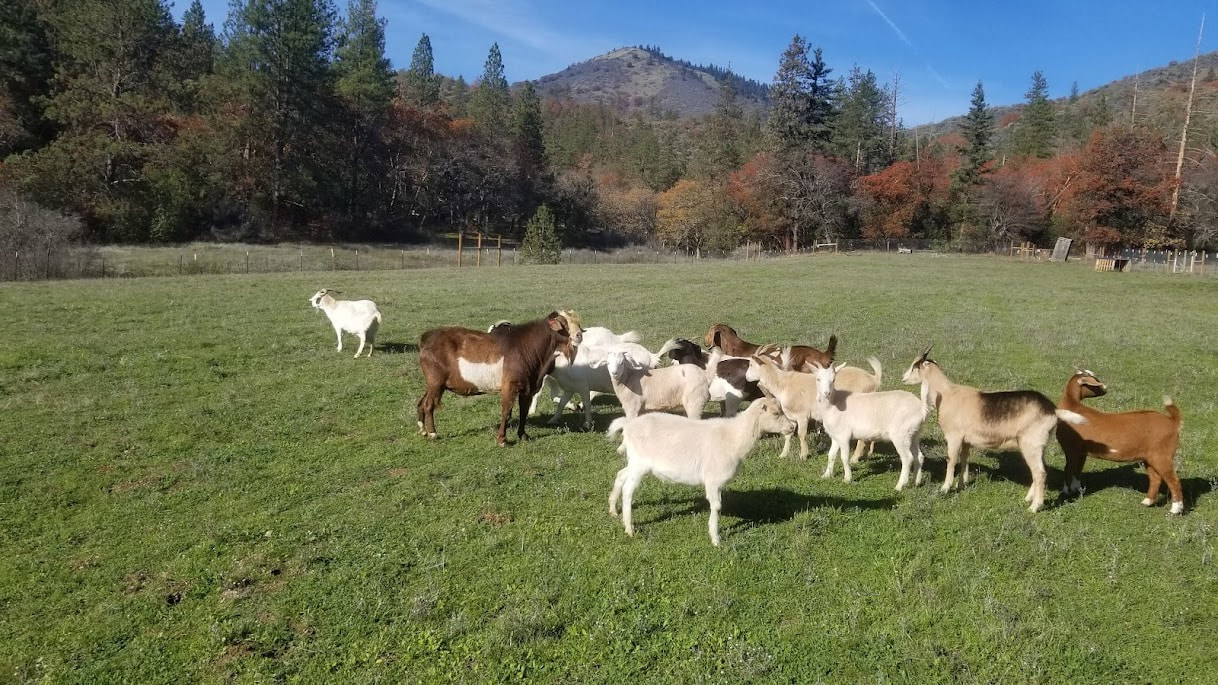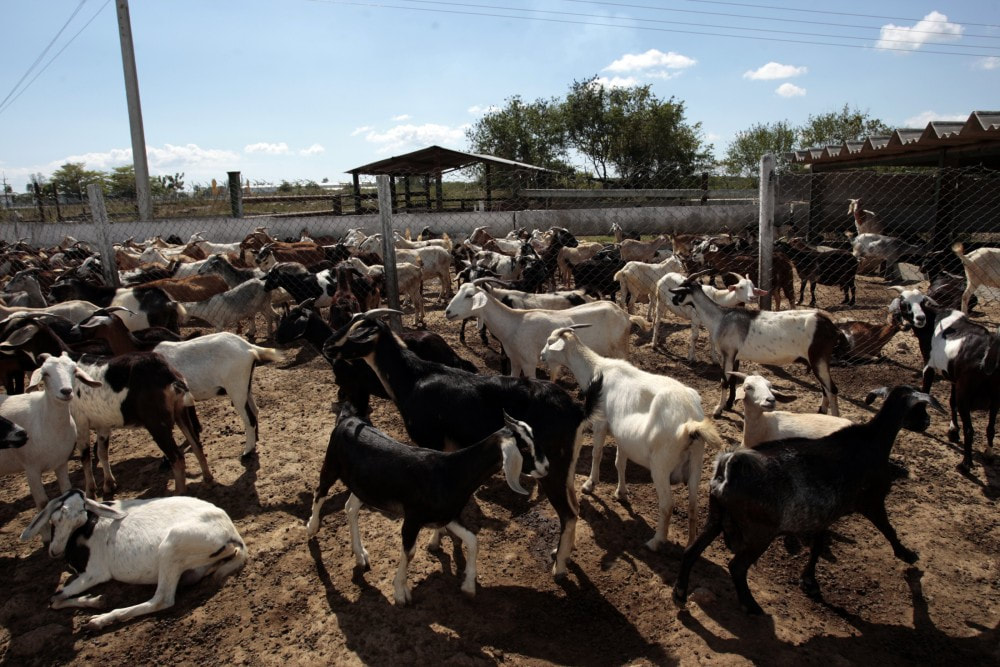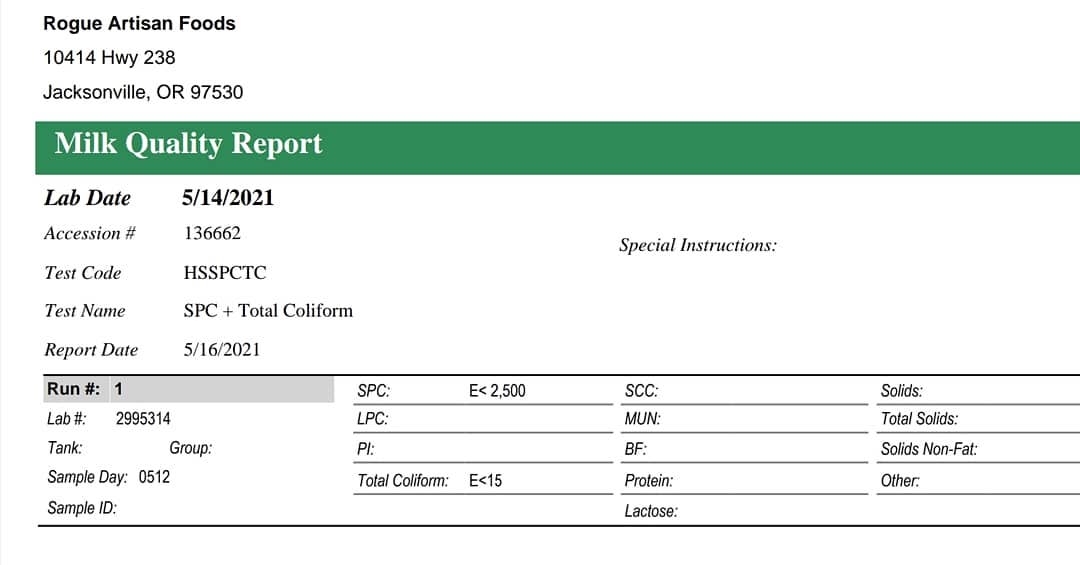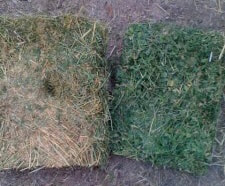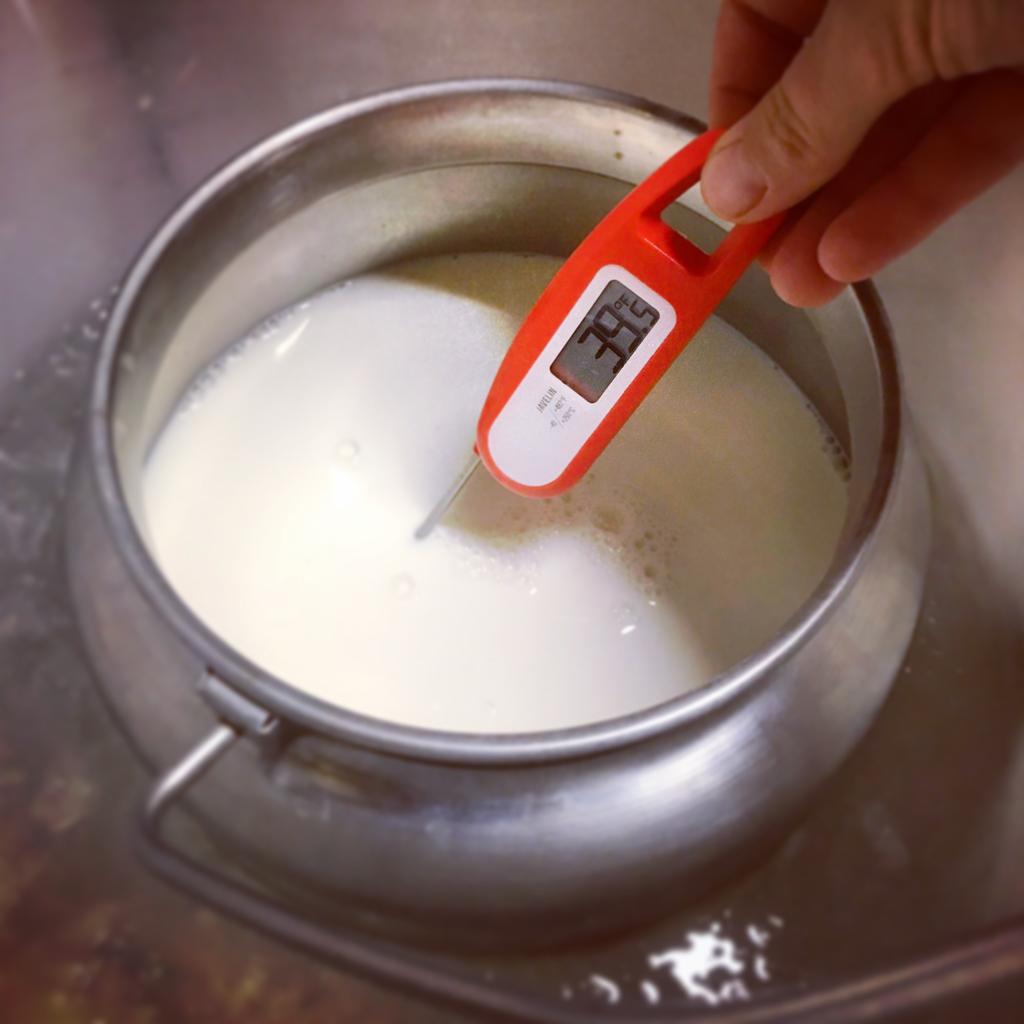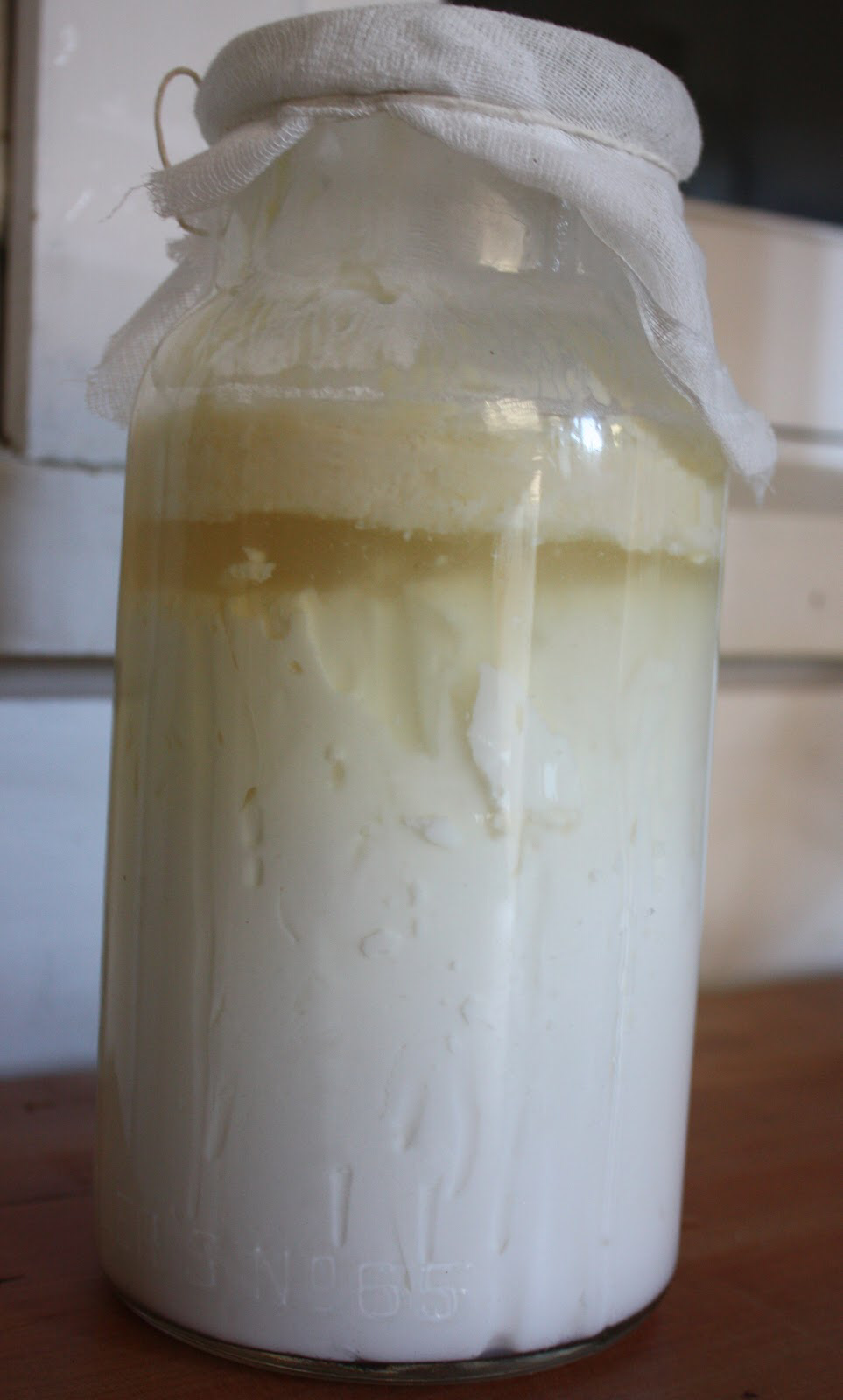|
So you’re ready for RAW milk? Now you are on the hunt for a good source of local, fresh, and SAFE raw milk. It's not just a matter of "Oh, my neighbor has a cow and is selling milk!" There are a few things you should ask about before deciding on a good source of fresh milk. As a small scale dairy farmer myself, I will give you the inside, need-to-know info for making sure the milk you buy is good for your family! The way to get this info and decide for yourself if it is healthy milk is to visit the farm! This is very important for purchasing fresh milk. If the farmer denies your request for a visit, RED FLAG! This time they spend with you is very valuable. You should be able to see the animals and ask questions, however, if you are looking for a full tour of the farm and to spend some quality time with the farmer, it is not uncommon for farmers to ask for a donation for an hour long tour; $5-10 for each adult. Farmers enjoy sharing their info, but for each individual customer it can be quite taxing and take away from work they could be doing to better their animals. So if they don't charge for tours and have spared more than 20-30 minutes answering your questions and walking you around (more than chit chat) consider giving them a tip IF you don't buy products, along with acknowledging that you appreciate their time. Many farmers will have a set day they allow customers to visit, or if they have a farm store on-site they will likely host a tour on a certain day. Please don't be put-off if a farmer is not able to spend a lot of time with you. As long as they answer questions and seem trustworthy, that should suffice for this info. When you arrive at the farm, look around.
Once you've had a look around the farm, here are some questions to ask your (potential) dairy farmer:What kind of milk testing do they do for safety? Coliform, Total Bacteria, and Somatic Cell Count tests are pretty standard in large dairy operations, but unfortunately, not so common for very small dairy farms. They can indicate the possible presence of mastitis, unhealthy or stressed animals, or a gap in the sanitation or milk handling process. Please see the safe handling of raw milk in our farm store For cows somatic cells should be below 200,000 mL and for goats less than 500,000 mL (but preferably much lower for raw milk, my bulk test is regularly 12,000-100,000 mL range). Coliform should ALWAYS be "not found" (labs will never give you a zero). Different labs give different ranges, some say <1, some say <15, etc it depends on how the lab interprets the results and their sample size. The standard legal limit for commercial raw dairies in states where they are regulated is usually 10. The farmer should be able to explain to you how the results work, if not you can call the lab and they can give you a quick answer. For raw milk the total bacteria should ideally be less than 2500/mL, but occasionally 2500-5000/mL would be acceptable, if it’s above 10,000/mL that is not a good sign for a small farm. High bacteria counts is usually caused by unclean equipment or poor cooling practices. If a farm is producing 5 gallons of milk or more a day, they should consider providing milk tests every 6-8 weeks, or a minimum or twice a year. It usually runs about $100 cost for all three tests with shipping. For the ease of mind and knowledge that you are providing your customers with the safest possible product, it is well worth charging a little more for the milk. And knowing your process works! If a farmer is unfamiliar with these tests, I would questions their understanding of safe milk handling... and probably not buy from them until they start testing and have safe results. Do they test for Johnes? Johne's (pronounced "Yoh-nees") disease and Mycobacterium avium paratuberculosis (MAP) infection are two names for the same animal disease. Named after a German veterinarian*, this fatal gastrointestinal disease was first clearly described in a dairy cow in 1895. It causes thickening of the intestinal wall which prevents the animal from absorbing nutrients, severe weight loss, diarrhea, and eventually death. These animals will be eating but essentially starving to death. The reason it is important to purchase milk from animals that test negative for Johnes is because a herd of animals can be carrying the bacteria, but not showing symptoms of the disease. Many Medical Researchers believe that Jhones could be the same mycobacterium that is seen in Crohn's disease. Its possible that the consumption of animal products from Johnes-positive animals may be a contributing factor to Crohn's disease and potentially other bowel diseases. "Due to the similarities between Crohn’s disease and Johne’s disease, a chronic enteritis in ruminant animals caused by Mycobacterium avium paratuberculosis (MAP) infection, MAP has long been considered to be a potential cause of Crohn’s disease." *1 The link between these two is highly debated with research on both sides. Based on the research I have done, I feel it is especially important to simply purchase milk from Johnes-negative animals when that milk will be given to small children and those with compromised immune system. 1. Adrienne L McNees, Diane Markesich, Najah R Zayyani & David Y Graham (2015) Mycobacterium paratuberculosis as a cause of Crohn’s disease, Expert Review of Gastroenterology & Hepatology, 9:12, 1523-1534, DOI: 10.1586/17474124.2015.1093931 In the U.S., it is estimated that 8% of the beef herds and 68% of the dairy herds contain at least one animal infected with this mycobacterium. This mycobacterium is not killed with pasteurization and a large percentage of milk from the grocery store may be from Johnes-positive animals, so buying fresh milk from a local farm with Johnes-negative animals is the only guarantee of safe milk in regards to this disease. Other zoonotic diseases (diseases that can be transferred from animal to human) to ask about are Q-fever and Brucella. Certain areas of the country can be hot spots for these diseases, this is the reason livestock must be tested to cross state lines. There are other tests that can be done on animals to ensure they are healthy but generally, a small producer who keeps a close watch on each animal personally will see signs of illness and not sell that animal's milk to customers. What Are Standard Animal Health Practices? What is the animal fed? I worked for a farmer years ago who claimed to be raising their goats on natural no spray alfalfa hay and organic feed. After a few weeks on the job, I discovered the source of these bales and that they had been treated with chemicals in order to prevent them from molding. This farmer did not know that information and was unknowingly feeding their goats chemically-sprayed hay and mis informing their customers. It's important to buy milk from a knowledgeable farmer. What kind of hay are they feeding their dairy animals? Is it sprayed with anything at all? If it's alfalfa hay, is it Round Up Ready alfalfa aka GMO? Look at the hay yourself when you visit the farm. Is it yellow like straw from being sun-bleached or lush green like grass? There are chemicals that can be sprayed on hay to keep it green before it is baled, these are called chemical conditioners/drying agents or preservatives. So make sure it has not been sprayed and is just naturally green from drying quickly and not exposed to sun or inclement weather. Obviously, healthier milk will come from animals fed green hay! For their milking grains, are they organic or transitional? If not, they are likely GMO (corn and soy are the biggies). It brings up the question of your comfort level with eating GMOs, I will leave you to decide on that.... ....And yes, I believe it is 100% okay to drink milk from dairy goats and sheep fed grains. Dairy goats and sheep are bred to produce such high amounts of milk that they cannot maintain their body condition from producing that much milk without grains. Cows have an easier time producing high amounts of milk on just grass. There are a select few goat and sheep dairy farmers who raise their animals without grains, but costs are high and profit is likely to be very minimal, so expect to pay more for grain free milk. What are they given for minerals? Dairy goats, cows and sheep require a constant, free-choice supply of supplemental minerals to maintain their health and flavor of milk. Animals without access to high quality minerals will produce off tasting milk, sometimes tasting bitter. With a good-quality mineral supplementation, you can bet that the milk will be that much healthier for your family too! In addition to these things, on our farm, we also give our goats free-choice organic kelp, raw organic apple cider vinegar and probiotics in their sprouted grains, which not only boosts our animals' health but the nutritional content of the milk as well! What is used for parasite prevention/treatment? What is the withdrawal time? I'm not very familiar with cows on this topic, but it shouldn’t be that different from goats and sheep. When it comes to goats, parasites just come with the territory... They will be a constant battle, but it is not usually a huge problem. Most dairy producers use chemical dewormers. When properly used and withdrawal times are respected the milk from these animals is “generally considered safe”. However chemical dewormers are causing resistance in the parasites and when not used properly can be harmful to the animal and transported in the milk or meat of the animal and be harmful for us. There are plenty of herbal dewormers that can be used that do not promote parasite resistance and are completely safe for human consumption without a withdrawal time. Since we raise our goats holistically we choose to use herbal dewormers like black walnut, pumpkin seeds, occasionally wormwood etc.... (Wormwood should not be used in pregnant animals and if used in lactating animals milk should be dumped for a period and not sold because of its abortificant properties, it is safe for non pregnant people). Currently, we purchase a dewormer from Molly’s Herbals. Raising goats without chemical dewormers is complicated, but possible. It invloves having a very nutritious diet with plenty of minerals and supplements, including copper, and access to fresh dry pasture (wet grass allows the parasites to climb up to the tip of the blades and wait for a host to bite) or forage on a regular basis. All goats should have regular checkups on each animal to make sure their parasite load is not getting too hard on the animal. This protocol is important for herbal and chemical dewormers, it includes checking for anemia and using the FAMACHA test which is very easy. When an animals is showing signs of heavy parasite loads it is time to do a fecal test so you know what you are up against. Unfortunately, the majority of dairy goat producers use regular treatments with chemical dewormers and sometime multiple times a year without knowing if the animals have parasites or not. Many of these practices are promoting resistance and have milk withdrawal times. Sadly, some farmers do not respect those milk withdrawal times. This means that the milk you are getting could have circulating chemical dewormers in them; products linked to birth defects, miscarriages, etc. It is imperative before buying goat or cow milk that you ask about their parasite prevention/treatment program! If they use words like "Ivermectin," "Safeguard," "Valbazen," etc., these are systemic poisons and should be avoided or consumed with caution. Also ask your dairy farmer if there are any (other) medications used, such as non-theraputic antibiotics, when/how they are used, and what the withdrawal time is on those medications. If your farmer does not know about withdrawal time on them, that should be a RED FLAG! Also, understand that a producer that claims that they NEVER use antibiotics, even as therapeutic use, might not have the best animal care practices. Antibiotics should always be a LAST resort for a sick animal, however, with-holding medication from a sick animal is cruel no matter how holistic your operation. In Organic Standard it is mandatory to give antibiotics to a sick animal who could benefit from them. In dairy production withdrawal times are respected and usually doubled for safety. For meat production these animals that have been treated with antibiotics must be culled from the Organic products, but can still be sold as long as it is transparent that they have received antibiotics for treatment and not be labeled “Organic”. How is the Milk Cooled? While large-scale producers will have stainless steel cooling tanks, smaller producers have to find other ways of cooling down milk quickly to keep pathogenic bacteria from forming. Simply placing milk in a refrigerator right away is not sufficient for cooling the milk down to ideal temperatures within the ideal time frame it can take 8-10 hours for it to reach 40F. For the minimum safety of milk it must be submerged in cold water or put in a freezer and go from 102F to 40F within 2 hours, this would be classified as Class D, it is technically safe, however, producers can easily do better. It is simple to submerge each jar or the whole bucket system into ice water or a semi frozen liquid like alcohol or propylene glycol in the freezer. If your producer is just putting milk in the fridge, do not buy it. They need to do better! Check out this full explanation of grades and temperatures hereand why it's important. Taste & Freshness Taste and freshness are pretty good indicators of a dairy animal's health and the sanitation of the milking process. For instance with goats, the milk will taste bitter and/or very "goaty" if the animal is overloaded with parasites or suffering from nutritional deficiencies. “Rancid” and “bitter” flavors can be a sign that the producers milk machine is agitating the milk too much while it’s warm and it is separating the fat from the milk. “Spoiled” or “fruity” flavors can mean that there is dirty equipment being used or the animals udders are not being cleaned properly and its contaminating the milk. “Malty” flavors can mean that the milk was not cooled quickly enough or was not stored properly and bacterial growth was allowed to happen. Any of these strong flavors can be good indicators that something needs to be improved. The milk will also tend to sour faster or taste off sooner than other fresh milk would. I find that milk from healthy animals should taste very fresh for at least a week and be drinkable for 12-14 days. Ive had some jars of milk that were stored at 34F for 20 days and were still okflavor wise when I first opened them. (And remember that unlike pasteurized milk, fresh, unpasteurized milk from healthy animals does not go rancid if handled safely; it simply clabbers:) Having A Hard Time Finding Milk?
If you are having a hard time locating some fresh, unpasteurized milk in your area, here are some ideas:
0 Comments
Leave a Reply. |
What Our Customers Are Saying"This is my second year signing up for the Goat Milk CSA Membership and I have always had good experiences. The milk is delicious and pickup is very straightforward. The milk also stays fresh for a very long time, meaning Gilly does an excellent job of sanitizing and cooling the milk to ensure safety! I'd highly recommend this to anyone looking for a local raw goat milk source." |
Want to receive email updates about
|
